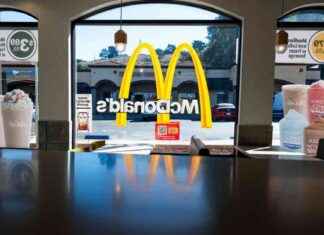Dubai: Tesla’s autonomous electric cars, which are entering the UAE market, will be part of Dubai’s taxi fleet soon, it was announced on Tuesday.
The Roads and Transport Authority signed a deal with the US-based manufacturer of autonomous electric vehicles on the sidelines of the World Government Summit 2017 on Tuesday.
According to the agreement, 200 electric vehicles with autonomous driving features will join the limousine fleet of the Dubai Taxi Corporation (DTC), a subsidiary of the RTA.
The RTA will carry out a test run of the autonomous hybrid electric vehicles soon and the first batch of 50 vehicles is expected to hit the road later this year.
Tesla’s Model S sedan and Model X SUV will be joining 4,700 limousines or luxury cabs that operate on Dubai roads, apart from 10,000 regular taxis which also include around 700 hybrid vehicles.
These cars will be part of the RTA’s category A limousines and will be operating under a different fare structure.
The move is part of the RTA’s aim to replace half of its taxi fleet with green vehicles by 2021.
It is also part of Dubai Smart Autonomous Mobility Strategy aimed at transforming 25 per cent of total journeys in Dubai into autonomous journeys by 2030.
According to Mattar Al Tayer, Director-General and Chairman of the Board of Executive Directors of RTA, the move is an attempt to achieve Dubai’s goal of becoming the world’s smartest city as well as ushering in the Green Economy for Sustainable Development initiative.
He added that Tesla was selected for its pioneering endeavours in the manufacturing of electric vehicles.
“The company is focused on creativity in autonomous driving as well as the storage of power. Tesla is the sole producer of autonomous deluxe electric vehicles and as part of its efforts to utilise alternative energy sources, it took over Solar City Company,” said Al Tayer.
Last year, Tesla developed a hybrid system for generating and storing solar energy in Tesla vehicles and broadened its scope to manufacture buses and heavy vehicles.
“It has also improved the autonomous driving systems by migrating from semi-autonomous driving to a fully autonomous driving environment, thus obviating the need for a human driver. It is also engaged in improving the shared mobility service through developing service systems for the next generation,” added Al Tayer.
Tesla reports that the Model S and the Model X vehicles to be deployed by RTA are equipped with the hardware needed for full self-driving capability at a safety level greater than that of a human driver.
He said that the objective of the endeavour is to support the Dubai Government’s efforts in transforming Dubai into the smartest city in mobility worldwide by 2020.
Last year, Dubai Supreme Council of Energy (DSCE) in association with the Dubai Electricity and Water Authority (Dewa) and RTA set new targets to cut down carbon emissions by increasing the share of green mobility.
According to the new target, electric or hybrid vehicles will have 10 per cent of the new vehicle share in Dubai in the next four years.
The green mobility initiative launched by DSCE aims at reducing carbon emissions by 16 per cent by 2021 and requires all government organisations to include hybrid and electric vehicles in their fleets.
It also targets that two per cent of all cars in Dubai will be either electric or hybrid vehicles by 2020 and it will reach 10 per cent by 2030.
Last year, the UAE also got its first electric vehicle (EV) regulations issued by Emirates Authority for Standardisation and Metrology (ESMA) that set the basic standards for EVs entering the country.
In 2015, Dewa announced installation of 100 electric car chargers in phases across the city in an attempt to promote use of electric cars.
According to Dewa, so far 51 chargers have been installed at key locations such as Dubai Airports, Dubai Municipality, RTA, shopping malls, petrol stations, hotels, and parking areas.
Our editors found this article on this site using Google and regenerated it for our readers.







